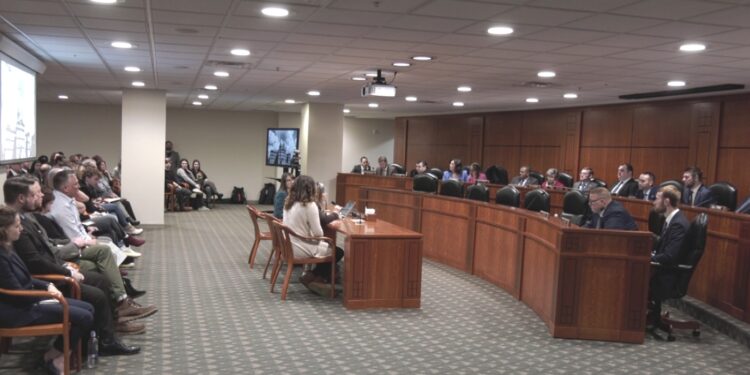LANSING, Mich. (WZMQ) – Michigan’s House of Representatives had its first committee meeting of the year this morning. The select committee was specially formed to address employment bills the lawmakers are hoping to pass before the old 2018 law is reinstated on February 21st.
Without the bills minimum wage is set to increase to $12.48 and tipped wages will rise from 38% to 48% of minimum wage. Businesses will also be required to provide a minimum of 40 hours of paid sick time.
the 2018 schedule will put the minimum wage up to $14.97 in 2028, and tipped wages at 80%. After that, wages are to be adjusted based on inflation and tipped wages will be raised to 100% by 2030.
It also requires employers to provide employees at least one hour of paid earned sick time for every 35 hours worked for up to 40 hours per benefit year. in addition, employers must allow employees to carry over up to 40 hours of paid earned sick time from one benefit year to the next.
The proposed House bills would set the minimum wage at $12 on February 21st, raising it to $12.50 in 2026, $13 in 2027, and then raising the wage by a dollar each year until 2030 when the state treasurer will adjust the wage for inflation.
Under the bill, employees would accrue at least one hour of paid earned sick time for every 30 hours worked, not including hours used as paid leave for up to 72 hours of earned leave.
Tipped workers on both sides have been speaking up about the changes since they were announced last July. With the beginning of the new legislature, lawmakers are pushing hard to pass a new law to set different rates before the changes kick in.
At the bill’s committee hearing, 50 testimony cards were submitted, but only three against the legislation were heard. Opponents testified, saying that many of the tipped workers who make fewer tips couldn’t afford to take the days off to come to Lansing to testify. One organizer with the group One Fair Wage said he supports the 2018 law because he believes tipped workers deserve to have wages paid for by employers and not by customers.
Those in support mostly spoke about concerns that the changes will decrease tips and burden small businesses.
The president of Michigan’s Black Business Alliance spoke in support of the new bills. She said small businesses are already over-regulated and under-resourced, and argued that the law would create overbearing mandatory changes that miss the mark when it comes to actual employee preferences. She said the new bills would ease requirements with special provisions for small businesses.
Lu Hayoz, co-owner of the Peppermill in Grand Rapids also testified in favor of the legislation.
“It doesn’t suit everybody. this money has to come from somewhere, and if we’re raising the minimum wage and then we’re giving everybody all this sick time. it’s worded very poorly.” hayoz said. “I have 15 to 20 employees… I don’t think that I should be held to the same standards as a big corporation that has many locations.”
Opponents say in the end, it’s the right thing to do to roll back tipped wages, requiring employers to take on that responsibility and urging lawmakers to vote against the bills.
The legislation might see some amendments from the committee before moving on for a vote in the House. If it passes, the bills will move on to a Senate Committee, and a vote in the full Senate. The legislation will have to work through those steps before the end of February to override the old law.










